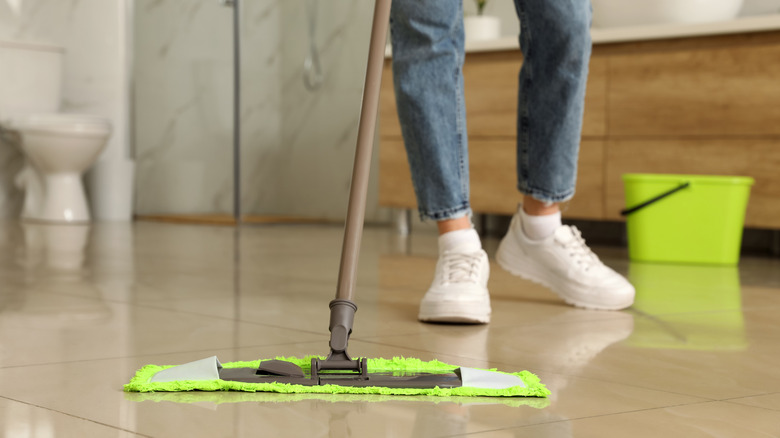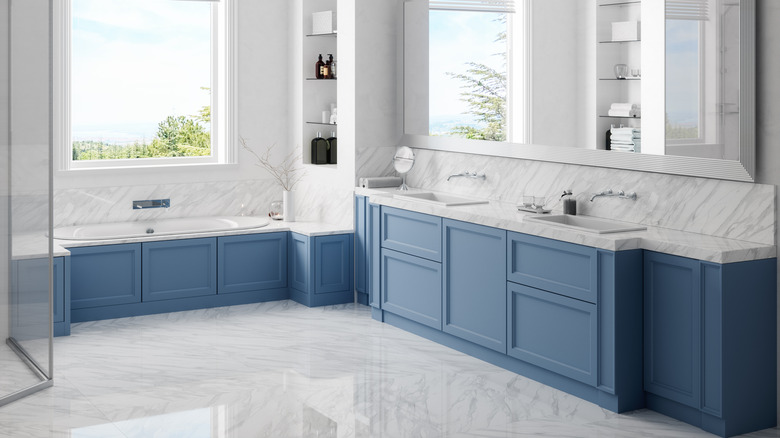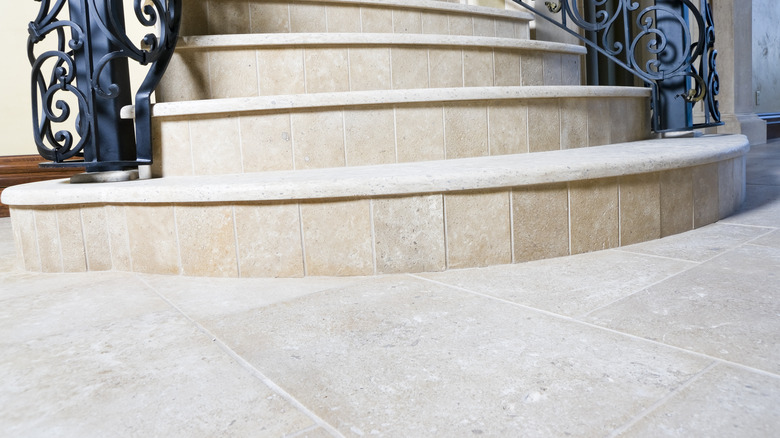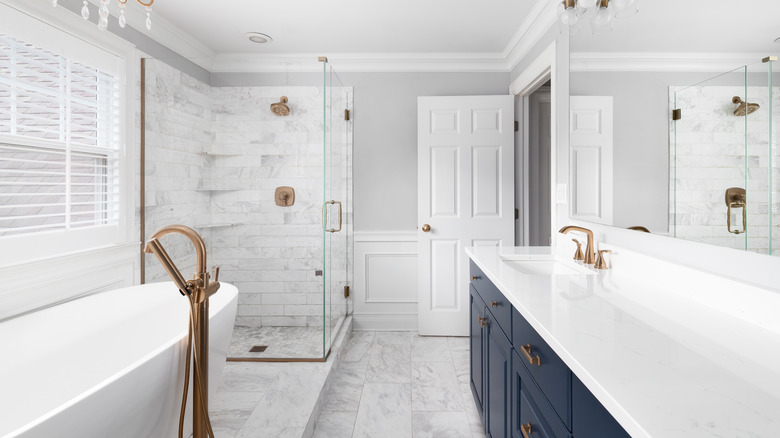The Stone Floors You Can't Clean With Vinegar And Why
While vinegar is commonly touted as a versatile cleaning solution, it's important to remember that it's still a strong acid. As such, it's best to avoid using it on certain types of flooring, particularly flooring made of natural stone such as marble, granite, and limestone. In fact, many flooring manufacturers warn against using vinegar so strongly that the floor's warranty is voided if vinegar has been used to clean it.
Even when diluted, vinegar is still far more acidic than what natural stone floors were meant to handle. Not only is the natural stone tile itself susceptible to damage from the acidic vinegar, but so is the sealant and the grout. When the protective sealant on your tile is slowly eaten away by vinegar, it leaves the expensive natural stone beneath it exposed and much more vulnerable to damage and staining, which can lead to the expensive reality of having to replace the floors altogether.
Marble
The acids in vinegar are especially harmful to marble flooring. The calcium carbonate in marble acts as a base, and when a base meets an acid, a chemical reaction occurs as the pH of the natural stone rises. Ifyour marble floors are exposed to vinegar over a long period of time and this chemical reaction is allowed to take place, the vinegar can slowly dissolve the sealant and grout on the tile. Once the grout and the sealant has been worn away, the stone itself is susceptible to pitting and other damage that can lead to costly repair or even full replacement.
Additionally, if vinegar has a chance to erode the sealant on the floor and make its way to the natural stone itself, the chemical reaction that takes place can also completely change the color of the tile. And the only way to fix this is to replace the stone itself, which can be very costly.
Limestone
Similar to the chemical reaction that takes place when vinegar reacts with marble, when limestone is introduced to vinegar, a chemical reaction also occurs between the calcium carbonate in limestone and the vinegar –- which is also easily identifiable in the form of fizzing on the surface of your floor. In fact, this very reaction is commonly sought in children's science experiments, where a small piece of limestone is submerged in a glass filled with vinegar, inevitably causing the stone to fizz. While this science experiment might be cool to witness in a classroom, it's not so cool when that science experiment is happening on your expensive limestone floor.
If allowed to come into contact with your limestone floors, vinegar can cause etching in the stone after dissolving the sealant, which can permanently alter the natural color by leaving behind a cloudy, white spot in the affected areas. While many cleaning gurus on TikTok and other platforms continue to clean their limestone floors with vinegar, claiming that it won't do damage as long as it's not allowed to sit for too long, it's best to avoid it altogether. It only takes seconds for vinegar to react with limestone, and it often starts to fizz on contact -– an indication that the vinegar has already begun to eat away at your tile.
Granite
Just like with marble and limestone flooring, using vinegar to clean granite floors is also a bad idea. The acid in vinegar wears away at the protective sealant of the flooring, and vinegar can also cause etching and pitting in your granite floors, just as it does with its other natural stone counterparts. Cleaning professional Lily Cameron warns via Reader's Digest that acidic cleaners such as vinegar can dull the finish of your granite floors or even permanently discolor the area of the floor that comes into contact with the vinegar.
While it's true the acidity in vinegar can be an excellent tool in cutting the grease and grime off of your highly-trafficked floors, the potential damage it can do to granite stone isn't worth the risk. Instead, Cameron recommends using a milder solution of one cup of water, one teaspoon of rubbing alcohol, and a half-teaspoon of dish soap. This is a solution safe to use on limestone and marble as well.



